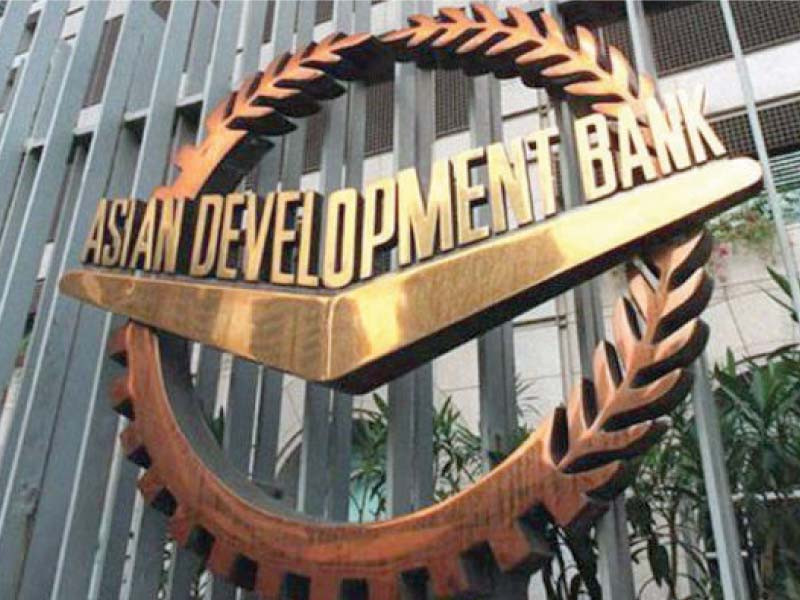
The Asian Development Bank (ADB) said on Wednesday that rising political and institutional tensions in Pakistan may jeopardise its economic reforms agenda whose implementation is very critical for smooth inflows of foreign loans under the new International Monetary Fund (IMF) programme.
In its Asian Development Outlook, the Manila-based lender projected only 2.8% economic growth for Pakistan in the current fiscal year – the lowest in South Asia – and put inflation at 15% - the highest in the region.
"The new government has committed to the necessary stabilisation and structural reforms but faces challenges owing to elevated political and institutional tensions and the prospects of social unrest from a steep drop in real incomes," said the report.
The report has been released in the middle of a constitutional crisis in Pakistan where key state institutions are pitched against each other. The government has refused to honour a judgement of the Supreme Court and the Election Commission has also refused to implement the apex court orders.
The government's first attempt to amend the constitution to bring the judiciary under its control has failed but efforts are going on to change the constitution for political gains.
The ADB said that there were high risks to Pakistan's economic outlook. With sizable external financing requirements, its economic outlook is vulnerable to any shortfall in external inflows, making timely disbursements from multilateral and bilateral partners crucial, the lender added.
It said that lapses in policy implementation could jeopardise the inflows, increasing pressure on the exchange rate and worsening sovereign debt vulnerabilities.
The report said that Pakistan's economy was expected to grow 2.8%, indicating the government would once again miss its annual target. It is the lowest growth rate in South Asia where India is leading with a 7.2% projected growth rate.
However, one of the reasons for the low growth in Pakistan is a sharp rise in the personal income tax.
"Higher personal income tax rates in fiscal year 2025 budget and the government's efforts to limit spending will constrain private and public consumption," said the ADB. In addition, growth in agriculture is projected to slow in this fiscal year, as higher administered prices for gas and lower subsidies raise the cost of fertiliser.
Inflation is expected to rise to 15% from its recent lows due to the impact of fiscal measures in the budget, said the ADB.
It added that inflation would be fueled due to higher sales tax on some items, and energy tariff adjustment required to ensure cost recovery in the energy sector.
State Bank of Pakistan (SBP) Governor Jameel Ahmad said on Wednesday that contrary to the ADB's projection, the central bank expected inflation to remain below 11.5% in the current fiscal year.
The ADB said that the central bank had committed to maintaining an adequately tight monetary policy to meet its medium-term inflation target.
It underscored that Pakistan's outlook hinged on continued and effective economic reforms and hoped that the IMF programme would enhance macroeconomic stability.
The programme aims to consolidate public finances, expand social spending and protection, rebuild foreign exchange reserves, reduce fiscal risks from state-owned enterprises, and improve business environment to encourage growth led by the private sector.
The government plans to achieve primary surplus over the medium term to reduce public debt to a sustainable level.
The ADB said that budget deficit in fiscal year 2025 was expected to equal 6.9% of gross domestic product (GDP). The projected deficit is higher by 1%, or Rs1.2 trillion, compared to the government's target. The lender said that interest payments would remain elevated at 7.9% of GDP, or Rs9.8 trillion. It will consume about 57% of the federal current expenditure and absorb about 75% of federal taxes.
According to the ADB, a robust revenue mobilisation effort and some reduction in interest outlays will create the necessary fiscal space for much-needed social and development spending. Provincial spending will be restrained to achieve a cumulative provincial surplus equal to 1% of GDP in FY25, and spending on defence and subsidies will be maintained at the FY24 level in terms of GDP.
The report noted that the government's medium-term fiscal consolidation effort envisaged a multiyear strategy for revenue mobilisation. The medium-term revenue mobilisation programme aims to bring retail and export sectors to the regular tax regime and to align provincial agricultural income taxes with the federal personal and corporate income tax regime through legislative changes.
However, so far there has been no progress on any of these measures, except for introducing the standard 29% income tax on earnings from exports.
Fiscal consolidation targets tax measures equal to 3% of GDP over the IMF programme period. With tax revenue measures equal to 1.5% of GDP already implemented through the FY25 budget, tax revenue is projected to rise to 11.2% of GDP, it added. The ADB projected the current account deficit at 1% of GDP in FY25. Despite a larger current account deficit, international reserves are expected to increase from 1.8 months of import cover in the last fiscal year to about 2.1 months by the end of this fiscal year.
The SBP governor said that the central bank had given the range of a balanced current account to a deficit of 1%. The central bank's expectations are that the current account will be near the balance level.
The ADB said that the trade deficit was expected to widen as imports grew more rapidly than exports, driven by ongoing recovery in domestic economic activity and the improved availability of imported inputs. The rise in the trade deficit will be partly offset by higher worker remittance inflows.

1729662874-0/One-Direction-(1)1729662874-0-405x300.webp)


1722421515-0/BeFunky-collage-(19)1722421515-0-165x106.webp)




1732084432-0/Untitled-design-(63)1732084432-0-270x192.webp)








COMMENTS
Comments are moderated and generally will be posted if they are on-topic and not abusive.
For more information, please see our Comments FAQ